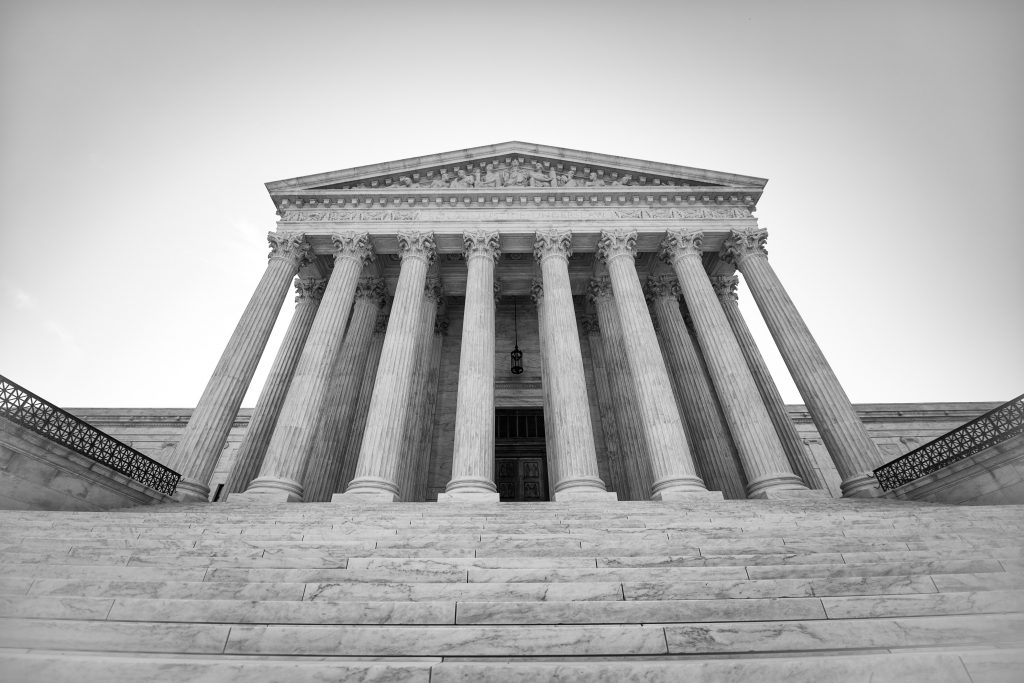Subscriber Benefit
As a subscriber you can listen to articles at work, in the car, or while you work out. Subscribe NowThe U.S. Supreme Court on Wednesday seemed likely to preserve the Republican hold on a South Carolina congressional district against a claim that it treats Black voters unfairly. The outcome could shape the fight for partisan control of the House of Representatives.
The court’s six conservative justices signaled skepticism with a lower court ruling that ordered South Carolina to redraw a coastal district that is held by Republican Rep. Nancy Mace.
Chief Justice John Roberts said a ruling for Black voters who challenged the district “would be breaking new ground in our voting rights jurisprudence.”
When Mace first won election in 2020, she edged Democratic incumbent Rep. Joe Cunningham by 1%, under 5,400 votes. In 2022, following redistricting driven by the 2020 census results, Mace won reelection by 14%. She is one of eight Republicans who voted to oust Kevin McCarthy as House speaker.
With Republicans holding a thin margin in the U.S. House, the loss or gain of one seat could alter the balance of power after the 2024 elections.
The Republican-led Legislature’s 2022 redistricting moved 30,000 Black residents of Charleston out of Mace’s district. The state argued that partisan politics, not race, and a population boom in coastal areas explain the congressional map.
“The General Assembly had no reason to and did not use a racial target. It used political data to pursue its political goals,” lawyer John Gore told the court on behalf of the state.
But the lower court concluded that the state used race as a proxy for partisan affiliation in violation of the equal protection clause of the 14th amendment.
Justice Ketanji Brown Jackson, one of three liberals who sounded sympathetic to the challengers, noted that the old and new districts kept the Democratic-leaning Black voting age population at 17%, low enough to keep electing a Republican representative.
“How do you explain the consistency? I mean, my understanding is that thousands of people were moved in and out of this district, and yet that line, the line concerning the amount of, you know, Black voter — adult voter participation remained the same,” Jackson said.
Justice Brett Kavanaugh, on the other hand, seemed to have little trouble with the state’s explanations for how the map ended up as it did. Kavanaugh asked what the court should do if it finds the state relied on solid political, rather than racial, data to draw the district.
“If that data is good, should we reverse?” he asked.
Kavanaugh and Roberts split with the other conservatives and joined the liberal justices when the Supreme Court in June said Alabama diluted Black voters’ political power.
Democrats seem likely to gain a seat in Alabama following a court-ordered redistricting that will give Alabama two congressional districts where Black voters comprise a substantial portion of the electorate. A similar pending Louisiana case could lead to a second mostly Black district there, too.
In South Carolina, Black voters wouldn’t be as numerous in a redrawn district. But combined with a substantial set of Democratic-leaning white voters, Democrats could be competitive in the reconfigured district.
Civil rights groups challenged the map in federal court and won a ruling from a unanimous three-judge panel in January.
Leah Aden, arguing in defense of the lower-court ruling, told the justices that “four of the five heaviest Black precincts” were moved out of Mace’s district, while a much lower percentage of majority-white voting precincts were moved.
The lower court put its order on hold to allow the state to appeal to the Supreme Court.
Republican Senate Majority Leader Shane Massey said in January that “we don’t need to draw anything until five members of the Supreme Court say we have to.”
Both sides want a decision by Jan. 1 so that the state can use a congressional map in the 2024 elections that complies with the Supreme Court’s ruling.
Please enable JavaScript to view this content.

